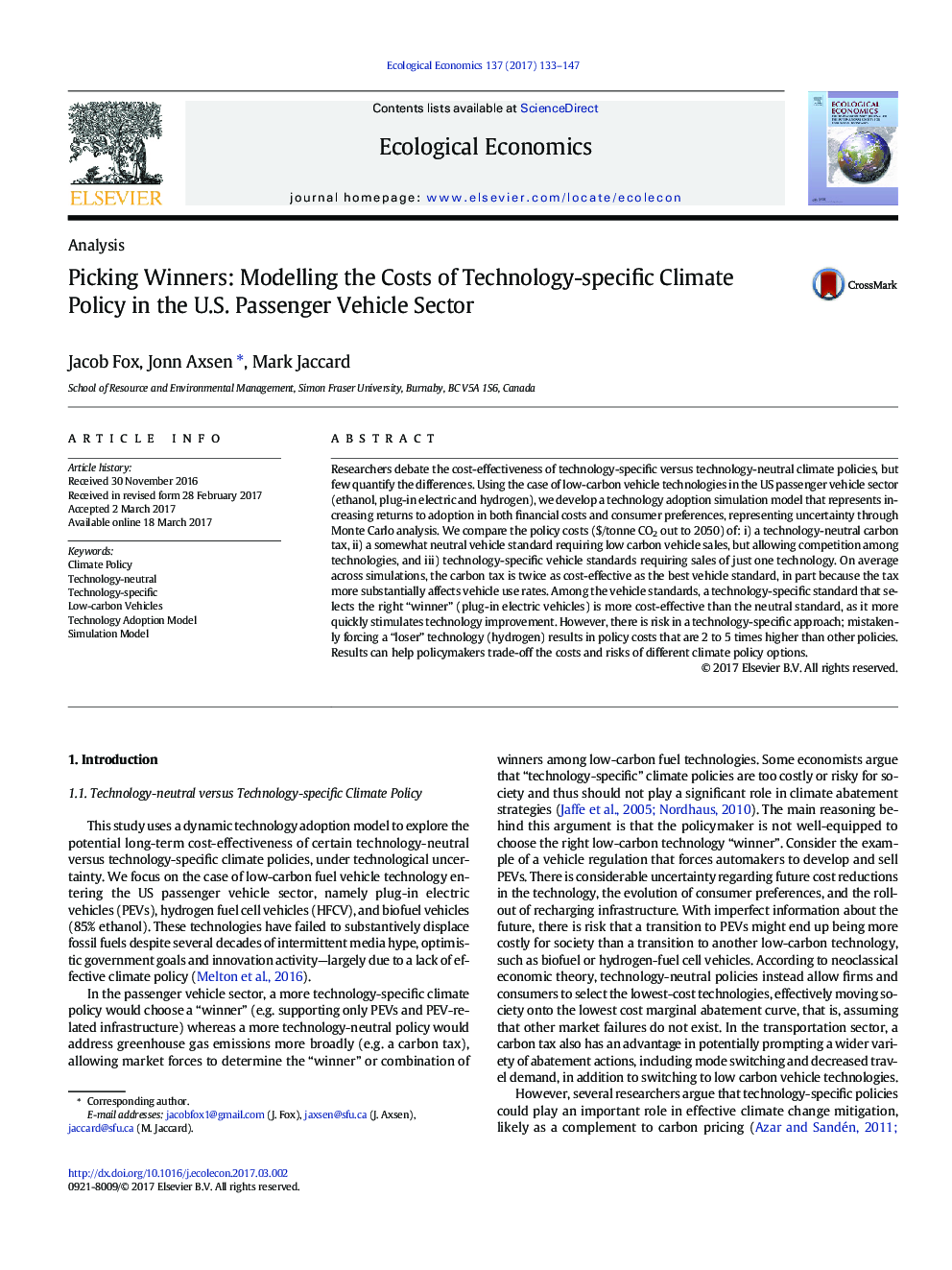| کد مقاله | کد نشریه | سال انتشار | مقاله انگلیسی | نسخه تمام متن |
|---|---|---|---|---|
| 5048920 | 1476342 | 2017 | 15 صفحه PDF | دانلود رایگان |
Researchers debate the cost-effectiveness of technology-specific versus technology-neutral climate policies, but few quantify the differences. Using the case of low-carbon vehicle technologies in the US passenger vehicle sector (ethanol, plug-in electric and hydrogen), we develop a technology adoption simulation model that represents increasing returns to adoption in both financial costs and consumer preferences, representing uncertainty through Monte Carlo analysis. We compare the policy costs ($/tonne CO2 out to 2050) of: i) a technology-neutral carbon tax, ii) a somewhat neutral vehicle standard requiring low carbon vehicle sales, but allowing competition among technologies, and iii) technology-specific vehicle standards requiring sales of just one technology. On average across simulations, the carbon tax is twice as cost-effective as the best vehicle standard, in part because the tax more substantially affects vehicle use rates. Among the vehicle standards, a technology-specific standard that selects the right “winner” (plug-in electric vehicles) is more cost-effective than the neutral standard, as it more quickly stimulates technology improvement. However, there is risk in a technology-specific approach; mistakenly forcing a “loser” technology (hydrogen) results in policy costs that are 2 to 5 times higher than other policies. Results can help policymakers trade-off the costs and risks of different climate policy options.
Journal: Ecological Economics - Volume 137, July 2017, Pages 133-147
